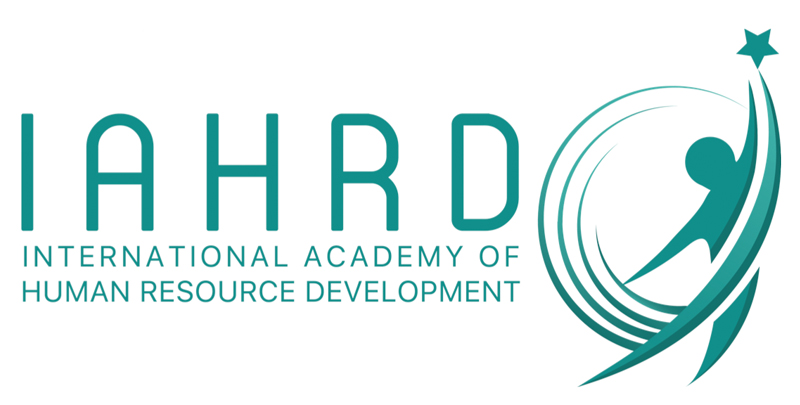
Advanced Project Management Professional (PMP)
Advanced Project Management Professional (PMP)
Introduction:
This course is introduced to you by the International Academy of Human Resource Development (IAHRD). We believe that the quality teaching is essential in the teaching process, that's why we deliver to you the best materials with the best trained teachers to fulfill your needs. The Advanced PMP course is one of the most respected courses that gives seasoned project managers the knowledge and skills needed.The rapid obstacles and updates in the science of PMP the increasing demand of PMP these days in the marketplace has increased its importance. The course will be covering areas such as avoiding common mistakes when executing and controlling a project, dealing with and satisfying stakeholder expectations, using trend analysis to measure project performance and improving project outcomes.
Remember that ' obstacles are those frightful things you see when you take your eyes off your goals', Henry Ford.
Objectives :
At the end of this course , participants will be able to:
- Commit and understand guidelines for project initialization and prioritization.
- Elicit a project execution methodology and the project life cycle.
- Measure and control project variance.
- Produce a project closure report and archive processes.
- Select a Project Management most suitable methodology.
- Manage multiple projects simultaneously.
- Assess and respond to changing stakeholders' needs.
- Scale Project Management to meet the needs of the project.
Content:
Module 1:
- Project selection and prioritization.
- Initiating a Project.
- What is a project life cycle.
- Tips on , from where to begin with a project?
- The value of a good start.
- What to consider when starting a project?
Module 2:
- Strategic planning.
- Project execution methodology.
- Starting project work, schedule and cost.
- Ensuring a successful start for the project work, schedule and cost.
Module 3:
- Commitment to stakeholders and team resources.
- Restraints to future success and how to prevent them.
- The process of commencing project work without repeating common mistakes.
- Getting work done
- Facilitating project work.
Module 4:
- Communicating work expectations for continuous control and improvement.
- Managing issues and action items.
- Key learning points.
- Continuous checkup on progress, status, and forecasts.
- Updating the schedule on regular basis.
Module 5:
- Recognize process groups.
- Project control.
- A framework for performance reporting.
Module 6:
- Different types of metrics
- Performance metrics.
- How metrics interact.
- Measuring projects and generating metrics reports.
- Interpreting project metrics.
- Baseline metrics.
- Earned value analysis metrics.
Module 7:
- Defining project variance.
- Different types of project variance.
- The causes of variance.
- Root contributors to variance.
- Methods root contributors identification process.
- Taking on time corrective actions to overcome variance.
Module 8:
- Definition and intention of corrective actions for unforeseen events.
- Points of leverage.
- Managing change, quality, and risk.
- Flexibility in responding to the dynamic nature of projects.
- Creating transparency.
- Holding your ground despite any sudden changes.
- Risk monitoring and control process.
Module 8:
- Quality control.
- Quality assurance.
- The challenge of project closure.
- When and how to learn from projects.
- Project closure and recommendations.
- Project closure reporting and archiving processes.
Who Should Attend?
- Projectmanagers who are looking for recognition of their competence to deliver projects to increase their productivity, efficiency and affectivity.
- Administrators and regular employees, the course will help them in achieving their tasks efficiently and right on time.
- Graduates and undergraduates who study business administration who wish to expand their knowledge or plan for their future career.
times [ Doha ]
| from | to | price $ | venue | actions |
|---|---|---|---|---|
| 2025-03-02 | 2025-3-6 | 3,750 | Doha | join enquire |
| 2025-03-09 | 2025-3-13 | 3,750 | Doha | join enquire |
| 2025-03-16 | 2025-3-20 | 3,750 | Doha | join enquire |
| 2025-03-23 | 2025-3-27 | 3,750 | Doha | join enquire |
| 2025-03-30 | 2025-4-3 | 3,750 | Doha | join enquire |
| 2025-04-06 | 2025-4-10 | 3,750 | Doha | join enquire |
| 2025-04-13 | 2025-4-17 | 3,750 | Doha | join enquire |
| 2025-04-20 | 2025-4-24 | 3,750 | Doha | join enquire |
| 2025-04-27 | 2025-5-1 | 3,750 | Doha | join enquire |
| 2025-05-04 | 2025-5-8 | 3,750 | Doha | join enquire |
| 2025-05-11 | 2025-5-15 | 3,750 | Doha | join enquire |
| 2025-05-18 | 2025-5-22 | 3,750 | Doha | join enquire |
| 2025-05-25 | 2025-5-29 | 3,750 | Doha | join enquire |
| 2025-06-01 | 2025-6-5 | 3,750 | Doha | join enquire |
| 2025-06-08 | 2025-6-12 | 3,750 | Doha | join enquire |
| 2025-06-15 | 2025-6-19 | 3,750 | Doha | join enquire |
| 2025-06-22 | 2025-6-26 | 3,750 | Doha | join enquire |
| 2025-06-29 | 2025-7-3 | 3,750 | Doha | join enquire |
| 2025-07-06 | 2025-7-10 | 3,750 | Doha | join enquire |
| 2025-07-13 | 2025-7-17 | 3,750 | Doha | join enquire |
| 2025-07-20 | 2025-7-24 | 3,750 | Doha | join enquire |
| 2025-07-27 | 2025-7-31 | 3,750 | Doha | join enquire |
| 2025-08-03 | 2025-8-7 | 3,750 | Doha | join enquire |
| 2025-08-10 | 2025-8-14 | 3,750 | Doha | join enquire |
| 2025-08-17 | 2025-8-21 | 3,750 | Doha | join enquire |
| 2025-08-24 | 2025-8-28 | 3,750 | Doha | join enquire |
| 2025-08-31 | 2025-9-4 | 3,750 | Doha | join enquire |
| 2025-09-07 | 2025-9-11 | 3,750 | Doha | join enquire |
| 2025-09-14 | 2025-9-18 | 3,750 | Doha | join enquire |
| 2025-09-21 | 2025-9-25 | 3,750 | Doha | join enquire |
| 2025-09-28 | 2025-10-2 | 3,750 | Doha | join enquire |
| 2025-10-05 | 2025-10-9 | 3,750 | Doha | join enquire |
| 2025-10-12 | 2025-10-16 | 3,750 | Doha | join enquire |
| 2025-10-19 | 2025-10-23 | 3,750 | Doha | join enquire |
| 2025-10-26 | 2025-10-30 | 3,750 | Doha | join enquire |
| 2025-11-02 | 2025-11-6 | 3,750 | Doha | join enquire |
| 2025-11-09 | 2025-11-13 | 3,750 | Doha | join enquire |
| 2025-11-16 | 2025-11-20 | 3,750 | Doha | join enquire |
| 2025-11-23 | 2025-11-27 | 3,750 | Doha | join enquire |
| 2025-11-30 | 2025-12-4 | 3,750 | Doha | join enquire |
| 2025-12-07 | 2025-12-11 | 3,750 | Doha | join enquire |
| 2025-12-14 | 2025-12-18 | 3,750 | Doha | join enquire |
| 2025-12-21 | 2025-12-25 | 3,750 | Doha | join enquire |
| 2025-12-28 | 2026-1-1 | 3,750 | Doha | join enquire |
